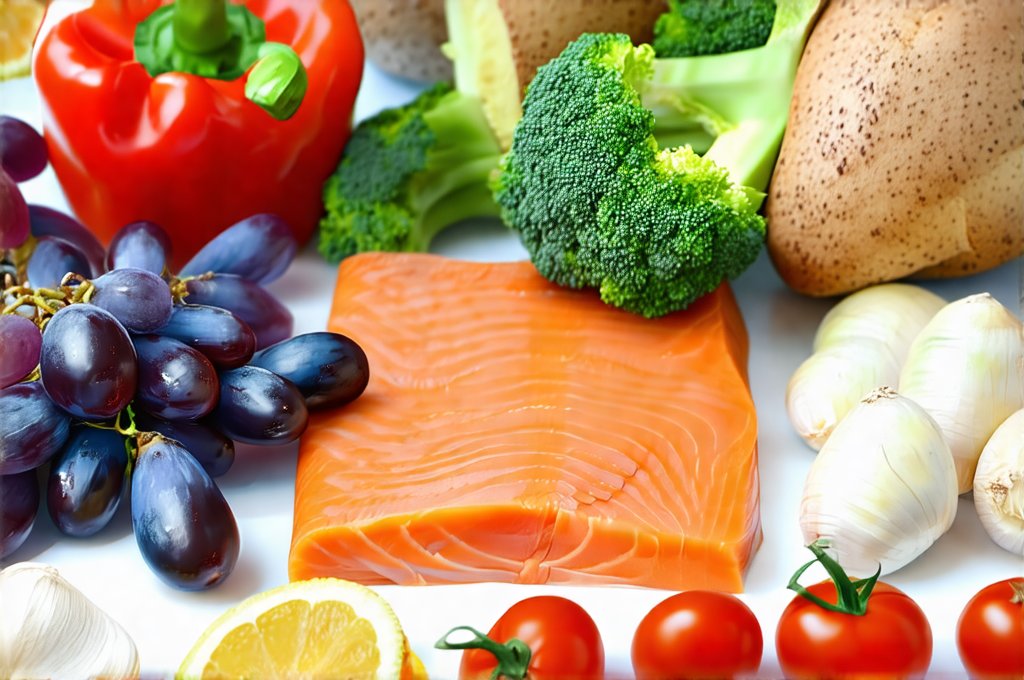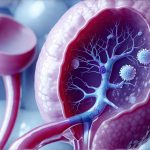Chronic cystitis is a frustrating condition characterized by persistent inflammation of the bladder, often leading to symptoms like pelvic pain, urinary frequency, urgency, and discomfort. Unlike acute cystitis which usually resolves with antibiotics, chronic cystitis can be more complex and difficult to manage, sometimes even persisting despite treatment. It’s crucial to understand that chronic cystitis is not always caused by a bacterial infection; it can stem from various factors including autoimmune responses, nerve damage, or sensitivities to substances in food and drinks. Many individuals find dietary modifications play a significant role in managing their symptoms, reducing flare-ups, and improving overall quality of life.
The relationship between diet and chronic cystitis is highly individual. What triggers one person’s symptoms might not affect another. However, there are common culprits that tend to exacerbate bladder irritation for many people with this condition. Identifying these foods and drinks, and learning how they impact your body, is a key step toward taking control of your health. This isn’t about restrictive dieting; it’s about informed choices and finding what works best for you through mindful experimentation and possibly collaboration with a healthcare professional or registered dietitian specializing in bladder health.
Dietary Triggers for Chronic Cystitis
The primary goal when adjusting your diet is to minimize bladder irritation. This often means identifying and reducing, or even eliminating, foods that are known to be acidic, spicy, caffeinated, or contain artificial sweeteners. It’s important to remember that the level of sensitivity varies greatly between individuals; a food that causes a severe reaction for one person might only mildly irritate another. Keeping a detailed food diary can be immensely helpful in pinpointing your personal triggers. Track what you eat and drink, as well as any associated symptoms, timing, and severity. This will reveal patterns over time and give you valuable insights into which foods to avoid or limit.
Many people with chronic cystitis report that citrus fruits (oranges, grapefruit, lemons), tomatoes and tomato-based products, vinegar, and spicy foods significantly worsen their symptoms. These foods can increase acidity in the urine, irritating the bladder lining. Caffeine is another common trigger; it acts as a diuretic, increasing urinary frequency and potentially exacerbating urgency. Artificial sweeteners, frequently found in diet sodas and sugar-free products, have also been linked to bladder irritation in some individuals. Alcohol can similarly contribute to increased bladder sensitivity. It’s not always about eliminating these foods entirely but rather understanding your tolerance level and adjusting consumption accordingly.
Ultimately, dietary changes should be approached as a personalized process of discovery. Start by eliminating the most common triggers for a period (e.g., two weeks) and then gradually reintroduce them one at a time to assess your individual reaction. Don’t jump to conclusions based on initial results; sometimes, reactions can be delayed or cumulative. It’s also vital to consider other lifestyle factors that might influence your symptoms, such as stress levels, hydration habits, and bowel regularity. A holistic approach to managing chronic cystitis often yields the best outcomes. If you have a history of calcium stones, dietary adjustments may need to consider that as well.
Understanding Bladder Irritants
Beyond specific food categories, it’s important to understand why certain substances irritate the bladder. The bladder lining is delicate, and anything that disrupts its natural protective barrier can lead to inflammation and discomfort. Acidic foods are a prime example; they directly increase acidity in the urine, causing irritation. Spicy foods contain compounds like capsaicin, which can also inflame the bladder wall. Caffeine’s diuretic effect concentrates urine, making it more irritating, while alcohol has similar effects and may also compromise immune function.
Artificial sweeteners, such as aspartame and saccharin, are known to have varying degrees of impact on individuals with chronic cystitis. Some find they experience significant flares after consuming these sweeteners, while others tolerate them without issue. The exact mechanism behind this sensitivity isn’t fully understood, but it’s thought that certain artificial sweeteners can disrupt the gut microbiome or directly irritate the bladder lining. It is important to read labels carefully and be aware of hidden sources of these ingredients in processed foods.
Hydration also plays a critical role. While adequate fluid intake is essential for overall health, excessive consumption of fluids – especially those with irritant properties – can worsen symptoms. Aim for consistent hydration throughout the day but avoid large volumes at once. Water remains the best choice, and herbal teas (excluding those known to be bladder irritants) can also contribute to your daily fluid intake. Remember that everyone is different, so finding what works best for your body is crucial. If you’re unsure about fasting while managing cystitis, consult your doctor.
Identifying Your Personal Triggers
- Keep a food diary: Meticulously record everything you eat and drink, including portion sizes and the time of day.
- Note symptom severity: Rate your symptoms on a scale (e.g., 1-10) to track how they change in relation to specific foods.
- Elimination diet: Remove suspected triggers for a set period, then reintroduce them one at a time.
- Pay attention to timing: Reactions can be immediate or delayed, so observe your symptoms carefully over several days after reintroducing a food.
- Consider hidden sources: Be mindful of ingredients in processed foods and beverages that might contain irritants.
The Role of Gut Health
Recent research highlights the significant connection between gut health and bladder health. A healthy gut microbiome supports immune function, reduces inflammation, and influences overall bodily processes. An imbalance in gut bacteria (dysbiosis) can contribute to chronic cystitis symptoms by increasing intestinal permeability (“leaky gut”), allowing toxins to enter the bloodstream and trigger inflammatory responses that affect the bladder.
- Probiotic-rich foods: Incorporate fermented foods like yogurt (if tolerated), kefir, sauerkraut, and kimchi into your diet to promote a healthy gut microbiome.
- Prebiotic fibers: Feed beneficial bacteria with prebiotic-rich foods such as onions, garlic, asparagus, bananas, and oats.
- Limit sugar and processed foods: These can disrupt the balance of gut bacteria and contribute to inflammation.
- Consider probiotics supplements: Talk to your doctor or a registered dietitian about whether probiotic supplementation might be helpful for you. Understanding sensitive bladder is also crucial when making dietary changes.
Hydration & Fluid Intake
Maintaining adequate hydration is essential, but how you hydrate matters just as much as how much you drink. Aim for consistent fluid intake throughout the day rather than large volumes at once. Water remains the best choice, and herbal teas (excluding those known to be bladder irritants like chamomile or peppermint) can also contribute to your daily fluid intake. Avoid sugary drinks, caffeinated beverages, and alcohol, as these can all irritate the bladder.
- Sip regularly: Drink small amounts of water throughout the day rather than gulping down large quantities at once.
- Avoid bedtime fluids: Reduce fluid intake in the hours leading up to bedtime to minimize nighttime trips to the bathroom.
- Monitor urine color: Pale yellow urine indicates adequate hydration, while dark yellow urine suggests you need to drink more.
- Listen to your body: Adjust your fluid intake based on your individual needs and activity level.
It’s important to note that this information is not intended as a substitute for professional medical advice. Always consult with a qualified healthcare provider before making any significant changes to your diet or treatment plan. If you are experiencing symptoms, it’s always best to tell if you have a bladder infection or cystitis.





















